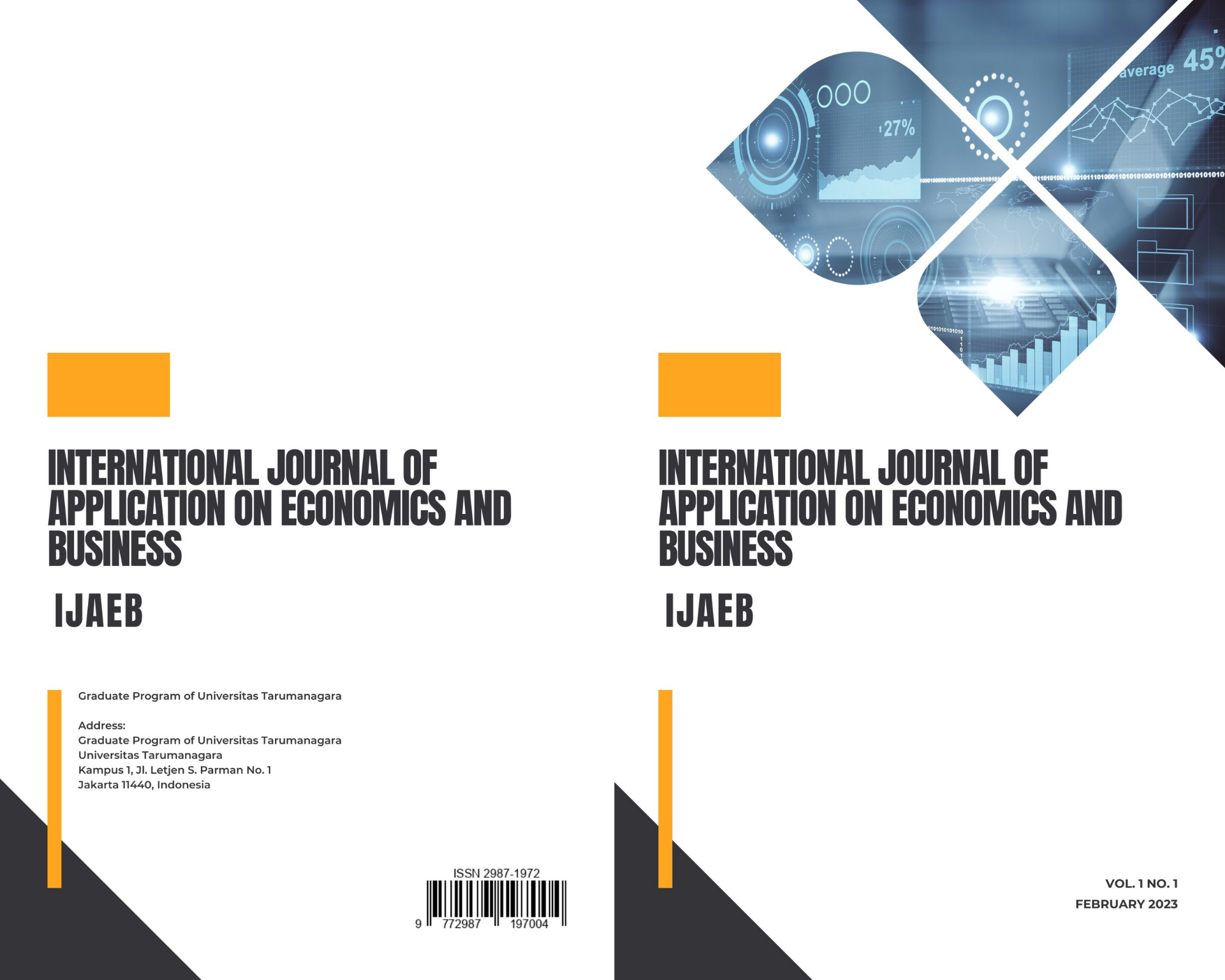The Predictors of Business Performance Among Culinary MSMEs in West Karawang, West Java Province, Indonesia
Main Article Content
Abstract
Along with the lifestyle of the people who like traditional cuisine, this change is an opportunity for culinary businesses, including the traditional culinary of West Karawang. As an industrial area not far from the city of Jakarta, the development of culinary businesses has an impact on economic growth and the preservation of local wisdom. Therefore, a study was conducted to analyze the determinants of business performance based on market-orientation, entrepreneurial orientation, and entrepreneurial competence. The population is micro, small, and medium enterprises (MSMEs) in the culinary sector in West Karawang with a sampling technique based on purposive sampling with the criteria of Karawang culinary or Sundanese cuisine. The analysis technique uses a quantitative approach with data collection techniques using questionnaires. 113 respondents were filling out the questionnaire. The results of the structural regression test identify that the influence of market orientation and entrepreneurial orientation is not significant, while entrepreneurial competence has a significant effect at the 5% on business performance. The results show third variable has significant positive effect on the business performance of the culinary sector UMKM in West Karawang. Therefore, local government needs to foster local economic growth while preserving traditional Sundanese recipes to maintain the sustainability of culinary treasures in the future.
Article Details
Section

This work is licensed under a Creative Commons Attribution-NonCommercial-ShareAlike 4.0 International License.
This journal provides immediate open access to its content on the principle that making research freely available to the public supports a greater global exchange of knowledge.
IJAEB by Graduate Program of Universitas Tarumanagara is licensed under a Creative Commons Attribution-NonCommercial-ShareAlike 4.0 International License.. Permissions beyond the scope of this license may be available at https://journal.untar.ac.id/index.php/ijaeb
References
A.K. Kohli, “Market Orientation in a Digital World,” Glob. Bus. Rev., vol. 18, no. 3_suppl, pp. S203–S205, Apr. 2017, doi: 10.1177/0972150917700769.
I. Kwil and K. Piwowar-sulej, “Local Entrepreneurship in the Context of Food Production : A Review,” Sustainability, pp. 1–21, 2020.
K. Nuringsih and Edalmen, “Local Food Entrepreneurship : Sebagai Model,” J. Muara Ilmu Ekon. dan Bisnis, vol. 5, no. 2, pp. 457–468, 2021.
Mulyasa, Manajemen Berbasis Sekolah, Konsep, Strategi dan Implementasi. Bandung: PT Remaja Rosdkarya, 2011.
Moeheriono, Pengukuran Kinerja Berbasis Kompetensi, edisi revisi, cetakan pertama. Jakarta: Raja Grafindo Persada, 2012.
F. Tjiptono and C. Gregorius, Pemasaran Strategik, Kedua. Yogyakarta, 2012.
Kotler, Philips, and G. Armstrong, Prinsip-Prinsip Pemasaran, 13th ed. Jakarta: Erlangga, 2012.
K. Poudel, R. Carter, and S. Lonial, “The process aspect of Entrepreneurial Orientation Performance Relationship: uncovering the mediating roles of Technological Capabilities, Innovation, and Firm Growth,” Front. Entrep. Res., no. pp. 483-497, 2012.
V. W. Putri and A. Yuniawan, “Organizational effectiveness: social capital and competitive advantage approach,” J. Din. Manaj. 7, vol. 7, no. 1, pp. 76–90, 2016.
M. Rifa’i, Suprihatin, and W. Agustim, “Kompetensi wirausaha, pembinaan, serta lokasi usaha pengaruhnya terhadap kesuksesan berwirausaha bagi pelaku usaha skala mikro,” J. Manag. Account., vol. 2, no. 2, pp. 159–173, 2019.
Q.R. Hamidah, A.T.P. Sejati, and A.Z. Mujahidah, “The Development of Small and Medium Businesses (MSMEs) Based on Technology to Deal with The Industrial Revolution 4.0,” vol. 2, no. Snip, pp. 345–349, 2019.
A.M. Shehu and R. Mahmood, “The Relationship between Market Orientation and Business Performance of Nigerian SMEs : The Role of Organizational Culture,” Open J. Bus. Manag., vol. 5, no. 9, pp. 159–168, 2014.
N.K.P. Satwika and N.M.W.K. Dewi, “Pengaruh Orientasi Pasar serta Inovasi terhadap Keunggulan Kompetitif dan Kinerja Bisnis,” E-Jurnal Manaj. Unud, vol. 7, no. 3, pp. 1481–1509, 2018.
J.G. Covin and D.P. Slevin, “A conceptual model of entrepreneurship as firm behavior,” Entrep. theory Pract., vol. 16, no. 1, pp. 7–26, 1991.
W. Loong Lee, A.L. Chong, and T. Ramayah, “The effects of entrepreneurial orientation on the performance of the Malaysian manufacturing sector,” Asia-Pacific J. Bus. Adm., vol. 11, no. 1, pp. 30–45, 2019, doi: 10.1108/APJBA-06-2018-0099.
A. Ziana and M. Rakib, “Pengaruh Kompetensi Kewirausahaan Terhadap Kinerja Usaha (Studi Pada Usaha Mikro di Kecamatan Ma’rang Kabupaten Pangkep),” 2019.

